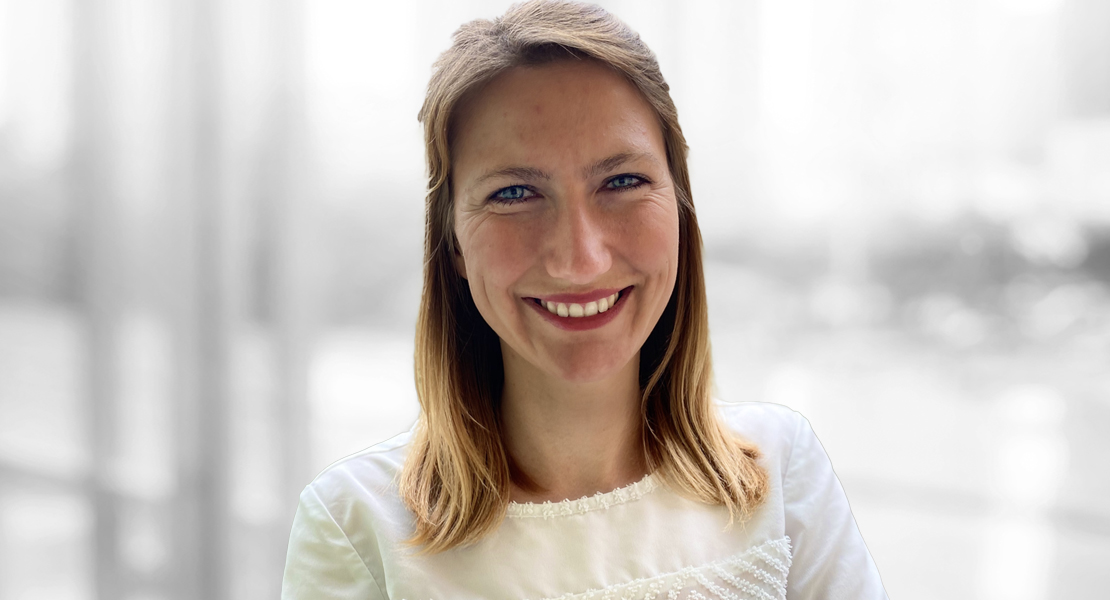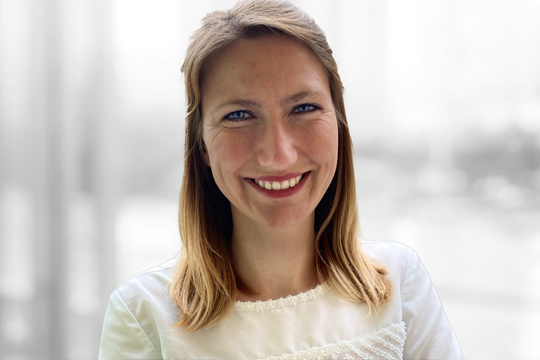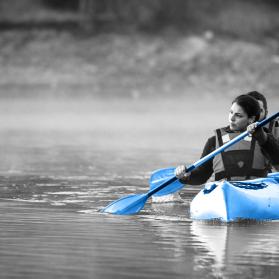Fridays for Future and corporate social responsibility — progress for the environment and sustainability depend in no small part on the commitment of each individual. It has become self-evident for more and more company employees to want to make a contribution to climate protection. We talked to Camilla Willeke, Lead of the Detecon Sustainability Community, about the opportunities for doing just that.
What are your objectives in the Sustainability Community?
The Sustainability Community is our offer of a platform to all employees where they can discuss and implement ideas and activities revolving around sustainability and share knowledge with one another. Among other actions, we invite external experts who can help us to raise our awareness and continuously improve our sparing use of resources. And finally, of course, we want to help to make Detecon itself, i.e., our employer, even more environmentally friendly. For example, we are about to wrap up the process of determining Detecon’s CO2 footprint. This will provide us with a sound foundation that we can use for the (further) development of a concrete action plan to reduce CO2 emissions. One of a number of measures for creating transparency is the use of a project monitoring tool that calculates the amount of CO2 emitted during project work; ideally, it would be integrated into daily work routines and be easily accessible to everyone. Obviously, the commitment and support of all colleagues is essential.
What specific parameters are considered in calculating the CO2 footprint?
One is the Greenhouse Gas Protocol (GHG), a reporting standard for CO2 emissions. Its criteria can be used as a yardstick for determining the CO2 balance. Emission categories range from company vehicle fleets and heating energy to electricity consumption, purchasing of goods, waste generation, business travel, and many more. During the pandemic, the factor of people working from home must also be taken into account. Although companies can create incentives in this respect, the ultimate responsibility is borne by each and every one of us.
Is there a specific goal that you want to achieve?
Based on our analyses, Detecon has set for itself the ambitious target of being climate-neutral by 2030. All current sources of CO2 emissions must be carefully examined. We must raise awareness and act now, not later.
You also launched the Sustainability Challenge. What can you tell us about that?
The YCN Board collaborated with Detecon’s Diversity and Sustainability Community to bring this project to life. The Challenge was used as a means of prompting employees to develop and submit sustainability ideas for Detecon. We were really delighted by the tremendous response. Encouraging words came from all sides, and many Detecon employees actively participated. The winning solutions are now being implemented step by step.
What opportunities did the Challenge bring to light?
Before the launch, we created an evaluation sheet that the individual teams could use as a guide; it included factors such as sustainability relevance, implementation time, impact and reach, and financial feasibility. A diversified jury comprising members of our management, regional heads, and Community representatives evaluated each of the projects and selected the winners. It was fascinating to see the incredible range of topics that was addressed by the measures.
The first-place solution, “Sustainability Day", can be regarded as an enabling initiative. The fundamental concept was that every Detecon location receives a budget of “sustainability days.” During these periods, Detecon employees can actively engage in sustainability projects, whether inside or outside the company, enabling us to become active ourselves in a virtually infinite variety of environmental initiatives; school gardens are just one example.
Creating awareness is at the heart of the second-place solution. Instilling awareness for the topic of sustainability can begin with very small steps in everyday working life, whether choosing to take the stairs instead of the elevator or cutting back on the reams of paper that are used — in the form of Post-its, for example. Waste separation, as shown by the third-place solution, is also an important issue. Conscious and sustainable selection of packaging materials and recycling solutions create awareness and improve the environmental balance.
What extrinsic incentives are needed to motivate each and every employee to do his or her share?
Success will come when measures are realized by a healthy interplay of bottom-up processes on the part of employees and top-down steering by management — only then will the seeded ideas germinate and spread throughout the entire organization.
Once that has been accomplished, the first question that is asked during the move to a new office will no longer be, “Are there enough parking spaces?”; perhaps instead, people will want to know, “How good is the local bicycle infrastructure?” or “What kind of public transportation network is available?” Business travel, of course, is also an important aspect of everyday consulting. We must establish more sustainable mobility solutions and create incentives. The booking tool for business trips should show how much CO2 can be saved by taking the train instead of a plane, for example, a feature that would further heighten awareness and transparency.
During the coronavirus pandemic, we and our clients have discovered that many consulting projects can be successfully carried out virtually while maintaining a high level of quality. In light of these revelations, we should not simply fall back into the comfort zone of the “old normal” once the coronavirus pandemic has passed. On the contrary, we should stay mindful of the sustainability aspect in all our consulting projects and become role models for our clients.
The interview was conducted by Gerhard Auer.








